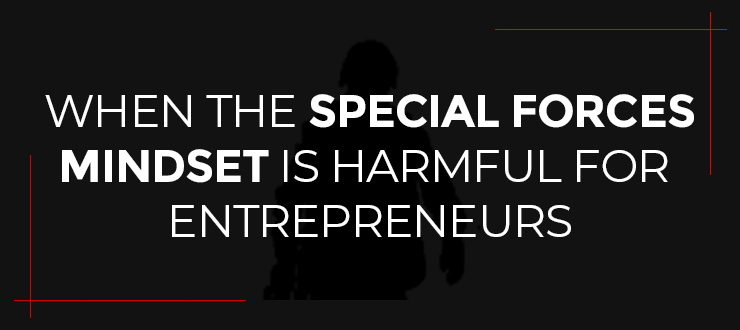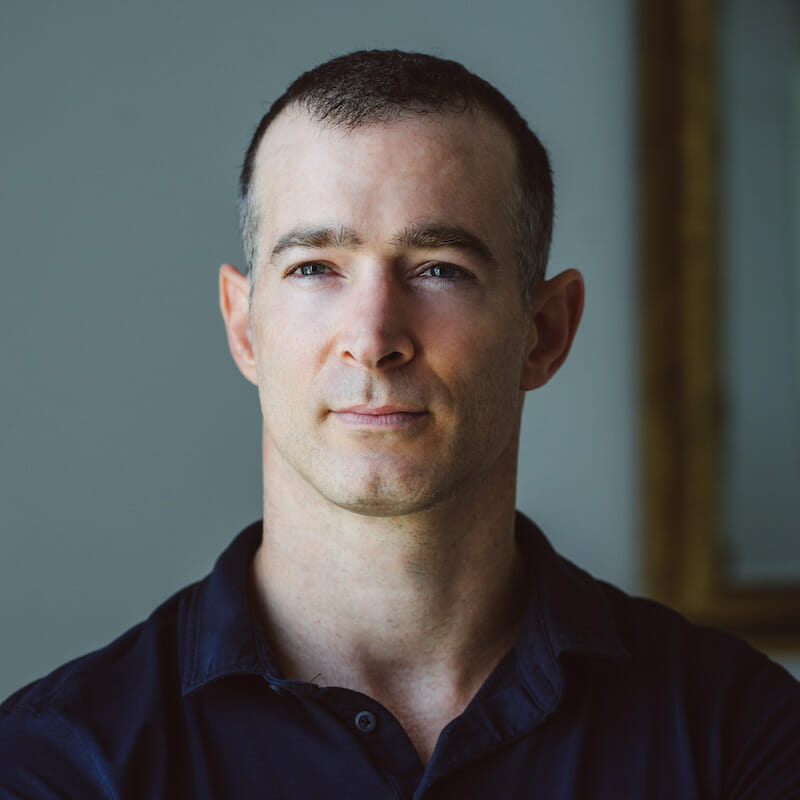In the elite special forces one of the most challenging things to do is to say "No." Or even worse "No, I can't do this."
It's a culture where a common saying is "There's no such thing as 'can't' there's only 'won't.'"
Where soldiers get brought up with virtues and ideals around "never giving up," "never giving in" and always finding something deep within to "push harder."
And while those virtues can reap amazing benefits they can also be dangerous.
The Point of No Return and the Ego
Certain complex missions involve something called "A point of no return".
It's a point during the mission that once is reached an irreversible decision needs to be made.
"Are the conditions right and should we proceed with the final stage of the mission or should we fold in and go back home?"
It's the poker equivalent of going all in.
One of the hardest things for any commander to do is to say "no" once he's at the "Point of no return." Regardless of how obvious it is that it's the correct call to make.
To look back at his team, who've already done so much work in planning the mission and in actually getting to the PONR and then to radio up his superiors and tell them "It's a no-go," can be gut wrenching.
Why?
Despite the fact that he's saying something very logical and correct he feels something different.
As someone who was specifically trained in the "there's no such thing as can't, there's only won't" culture, what he feels he's saying is "I'm giving up and we're giving up" and his ego sparks up.
You can see how that can be extremely dangerous, right?
How that ego and fear of judgement could lead to dangerous consequences.
How getting tunnel vision on not losing a single battle could cause you to risk everything and possibly lose the war.
The Sunk Cost Fallacy
The funny thing is that as certain types of entrepreneurs and high achievers we face the same struggle.
Instead of the "Point of No Return" it's called "The Sunk Cost Fallacy."
We tell ourselves:
"I've invested so much time, effort and money into this that it would be a shame to not just push it through to the finish line."
And we bullheadedly push through on projects that should be scrapped.
We struggle to make the correct logical decision for ourselves because of a fear of judgement. Either from others or honestly, ourselves.
And that's understandable. Right?
If we want a unique and amazing life, we must be willing to do what most won't.
So we say thing to ourselves like:
"I should just push through. I can handle this. Embrace the grind."
And again, just like in the special forces, while these thoughts have their time and place they have the potential to lead us to a dangerous place.
The First Lessons of Entrepreneurial Bootcamp
A primary reason this happens is because of the sequential order in which we learn things.
The first days of bootcamp in the special forces are all about getting the soldiers adjusted to an extreme mental and physical intensity. Learning about risk totem poles and operational overviews come in much further down the road.
In the beginning days of entrepreneurial bootcamp we learn to work hard and put in the extra effort and long nights before we figure out how to do an 80/20 analysis, right?
So when push comes to shove and we're in a challenging situation where our ego gets challenged we naturally fall back on our deepest most ingrained tendencies. That default of working hard and pushing through.
So we embrace the grind, put our heads down and keep going.
"Yes, things are a bit of a mess with this project and I'm not sure where it will go, but at least I feel good about myself for pushing through, not giving up when things are hard and being a "good entrepreneur."
Why? Because it gives us certainty and confidence.
It feeds our ego and basic needs at a very primal level.
Something we crave while engulfed in the chaos and uncertainty of entrepreneurship.
We tell ourselves that no matter the outcome, we're still hard working individuals and we can take pride and comfort in that... Which can feel nice, but is not the best for creating optimal results.
It's a terrible way to make decisions.
A Better Question for Better Results
A simple way to solve this issue is when things get challenging:
- Take a breath.
- Take a step back in order to avoid going into autopilot soldier mode.
- Use "The Hindsight Matrix" and ask yourself a simple question "What would the successful version of myself 3 years from now tell me to do in this situation regardless of how it might feel right now?"
Just doing those two things and asking that simple question can create a ton of perspective and remove the ego.
It can help you see where your ego is naturally taking over and leading you in the wrong direction.
If you want to learn more about the power of "The Hindsight Matrix" go Here.

